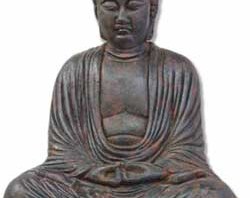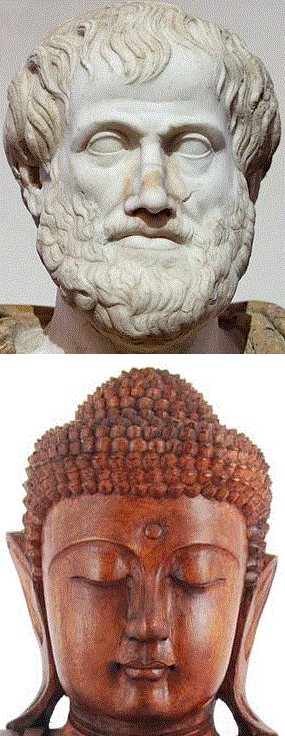No matter how people try to spin it, anyone with a true open mind would agree that Aristotle and Buddha (Siddhārtha Gautama Buddha) are (rather not say “were”) the fathers of the universal philosophy. They are the first people to promote comprehensive understanding of human behaviors. The contributions these two people made to the advancement of philosophy, psychology, religion and civilization can still be felt in the modern societies.
Over 2500 years ago, a man named Buddha said, “All that we are is the result of what we have thought. The mind is everything. What we think we become”. This statement (or principle) not only a valid point in 625 B.C., but it is a very applicable principle in modern societies. If you break it down to key elements, what he really meant is that you become what you think and everything in your mind is shaped by precipitation. If you are able to have positive perceptions, it will create a peaceful life for yourself.
What are perceptions and how do they form?
I met several people at the University who told me that I worry too much about my GPA and exam grades. While I may have dismissed their remarks, I realized that I am a bit of an extremist in perfection. This is a negative condition because nothing in this world is perfect. Some young students not only worry about perfection, but also worry about what others think. One girl told me that she is worried about not being “fun” like the other girls in our Geology Department. I asked her “what do you mean by fun?”. She told me that she is not willing to participate in social events because she doesn’t like to get drunk or fool around. She wants to be a university professor and she is focused on education. While Buddha himself is against the idea of extreme behaviors (including academics), you should not let others decide your level of happiness.
Pay attention to yourself
In this globalized age with consent pressure to rise above all, most people don’t pay attention to “self”. But rather they worry too much about competition and what others think of them. According to both Aristotle and Buddha, you, yourself should be the most impotent thing to you. If you don’t take care about yourself, how could you worry about others? Instead of competing for positive feedback from people around you, focus on what matters to you. You will never find the true happiness by chasing dreams of others!

